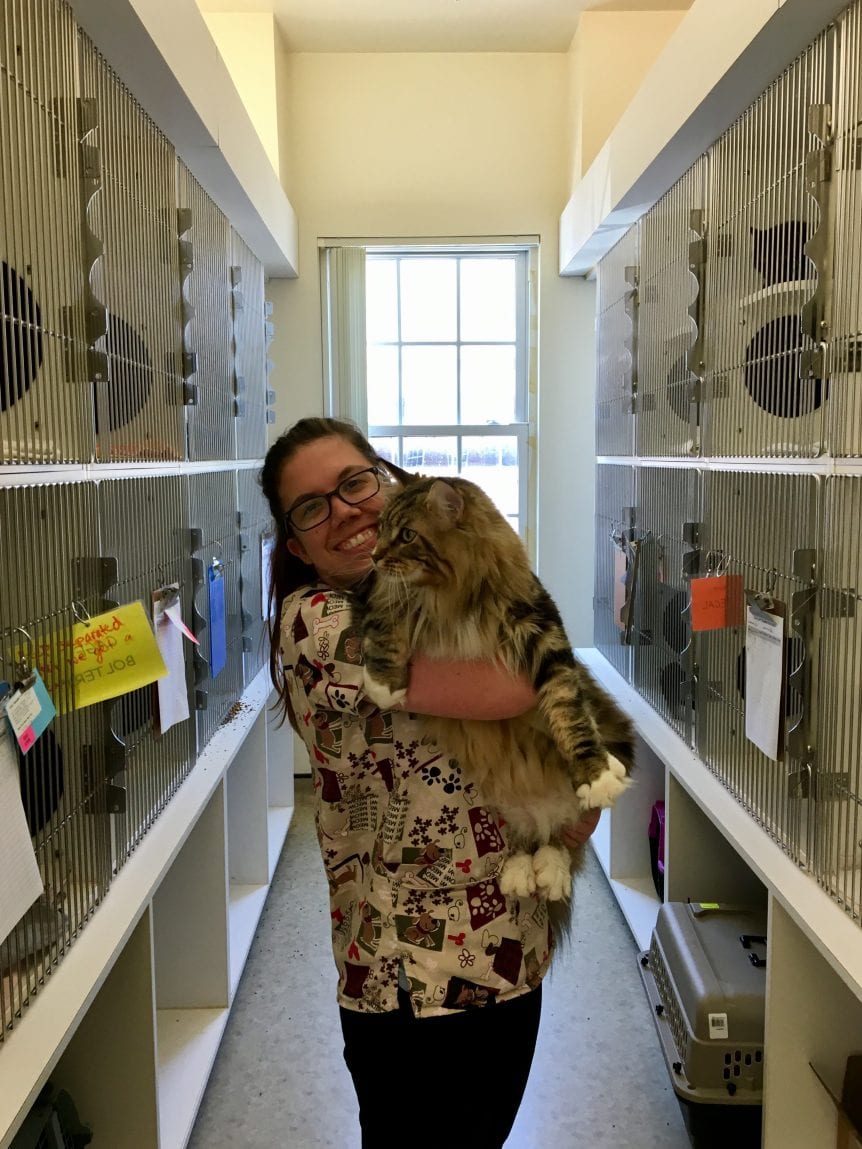Fleas are the most common parasite to plague cats and dogs. Read this guide to determine if your pet has fleas, and what to do about it.
Symptoms of Fleas on Dogs
Fleas are most commonly noticed on a dog’s stomach, the base of the tail and the head. Common symptoms of fleas on dogs include:
- Droppings or “flea dirt” in a dog’s coat (small dark “grains of sand”)
- Flea eggs (tiny, white grains)
- Allergic dermatitis
- Excessive scratching, licking or biting at skin
- Hair loss
- Scabs and hot spots
- Pale gums
- Tapeworms
Symptom of Fleas on Cats
If you see your cat scratching often and persistently, invest in a fine tooth comb and run it through her fur, paying special attention to the neck and the base of the tail. If you see small, fast-moving brown shapes about the size of a pinhead in her fur, your cat has fleas. Other symptoms:
- Droppings of “flea dirt” in a cat’s fur (small dark “grains of sand”)
- Flea eggs (tiny, white grains)
- Itchy, irritated skin
- Persistent scratching
- Chewing and licking
- Hair loss
- Tapeworms
- Pale lips and gums
Causes of Fleas
- Fleas are easily brought in from the outdoors.
- Fleas thrive in warm, humid climates at temperatures of 65 to 80 degrees.
- Adult fleas spend most of their lives on the animal, laying eggs in the fur.
- These eggs drop out onto rugs, upholstery, bedding and furniture; the new adult fleas will, in turn, find their living host (either human or animal).
Flea Treatment
Contact our office as soon as you suspect your pet has fleas. If you do not treat your pet for fleas, the condition could get worse. Our vets will likely recommend a treatment plan that may include:
- Topical or oral treatment or the use of shampoos, sprays and powders on the pet.
- Thorough cleaning of your house, including rugs, bedding and upholstery. Severe cases may require using a spray or a fogger, which requires temporary evacuation of the home.
- It is very important not to use products on your cat that are intended for dogs.
- Lawn treatments may also be needed if your pet keeps getting re-infected every time it goes outside.

